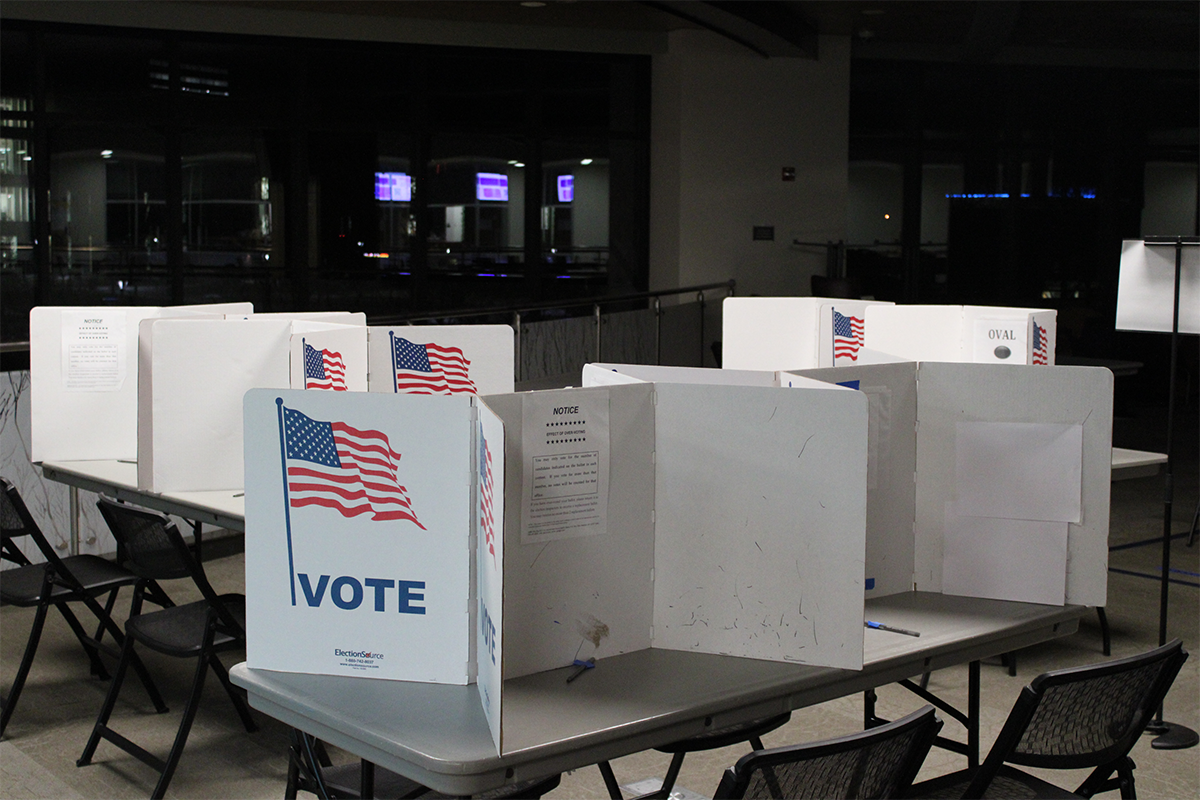 Butch McCartney
Butch McCartney
Danny Wheeler was serving as chaplain for the Marines in Beirut in 1983 when a terrorist bombed the barracks, killing more than 200 people.
Wheeler was buried beneath rubble for five hours. His faith was important in facing the calamity, but he was left with a hatred of Muslims, he said.
One day a U. S. Marine who was a Muslim entered his office. Wheeler said he asked God why the young man entered his office.
He understood, he said, when he realized that meeting this Muslim-American led him to stop hating Muslims.
Wheeler was one of the community members who attended a panel discussion at UW-Eau Claire Wednesday night with the hope of uniting Christians, Jews and Muslims in the Chippewa Valley.
The discussion began with a primer on Islam described by Mahmoud Ahmed, a psychiatrist from Egypt.
Islam, which means submission of one’s soul to God, is founded upon five pillars, he said.
The first is the belief that there is only one God and that Muhammad is his prophet, Ahmed said.
“We also need to believe in the other prophets, like Jesus and Moses,” he said.
The other pillars are praying five times a day, but only to God; paying an alms tax; fasting during the holy month of Ramadan; and taking a pilgrimage to Mecca, if one can afford to, he said.
“The name Islam is from the work salama, which means peace,” Ahmed said, emphasizing that Islam is a religion of peace.
When Osama bin Laden says the Quran says Americans must be killed, he is taking it out of context, Ahmed said.
“The Quran is like any religious book – it must be taken as a whole,” Ahmed said.
Ahmed referred to the Surah Al-Maaida chapter of the Quran, which says “…If anyone killed a person not in retaliation for murder or to spread mischief in the land, it would be as if he killed the whole of mankind. And if anyone saved a life, it would be as if he saved the whole of mankind.”
“This is an example of how peaceful Islam is,” he said. “Violence is not part of a religion whose name is peace.”
There is a big difference between Islam and Muslims, just as there is between Christians and Christianity, Ahmed said.
“There is a difference between Tim McVeigh and all of us here,” he said.
Arabs and Jews lived together in peace prior to modern times.
Nationalism, not religion, is not the root of conflict in Israel, said Ali Abootalebi, assistant professor of political science who came to the United States from Iran in 1977.
Likewise, culture, not religion, is the source of discrimination against women in the Islamic world, said Naghma Husain, an Eau Claire physician in the audience, and a Muslim. Islam teaches that women should be respected.
Moderator Kristin Everett, a former news anchor at WQOW-TV, asked if this is the end of the world as foretold in Revelations.
Wheeler, now a Navy Reserve chaplain, said that Revelations has been largely misinterpreted.
It has nothing to do with the end of the world, but with the end of victimizing a persecuted people, he said.
“I don’t take it literally,” Wheeler said.






